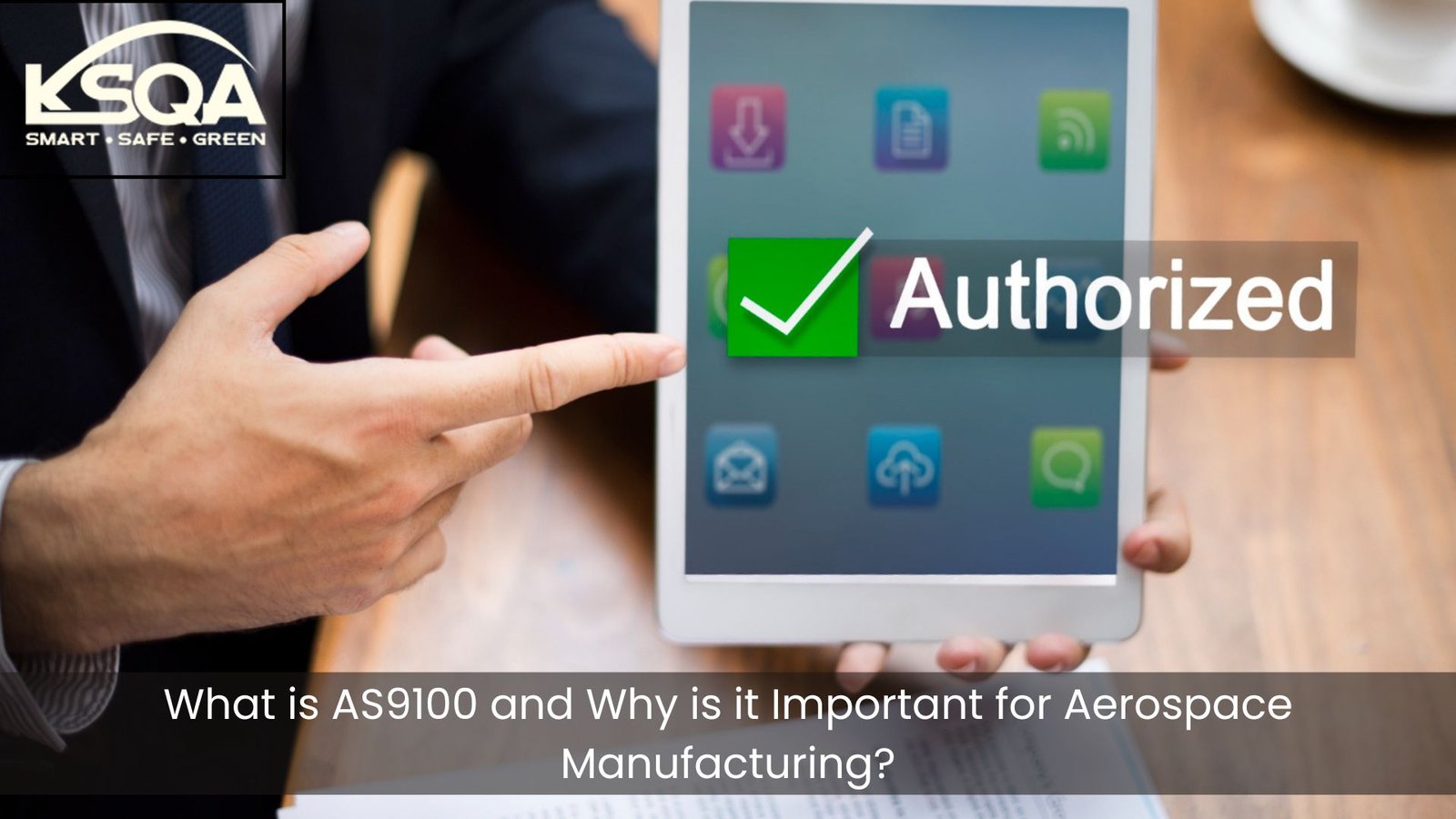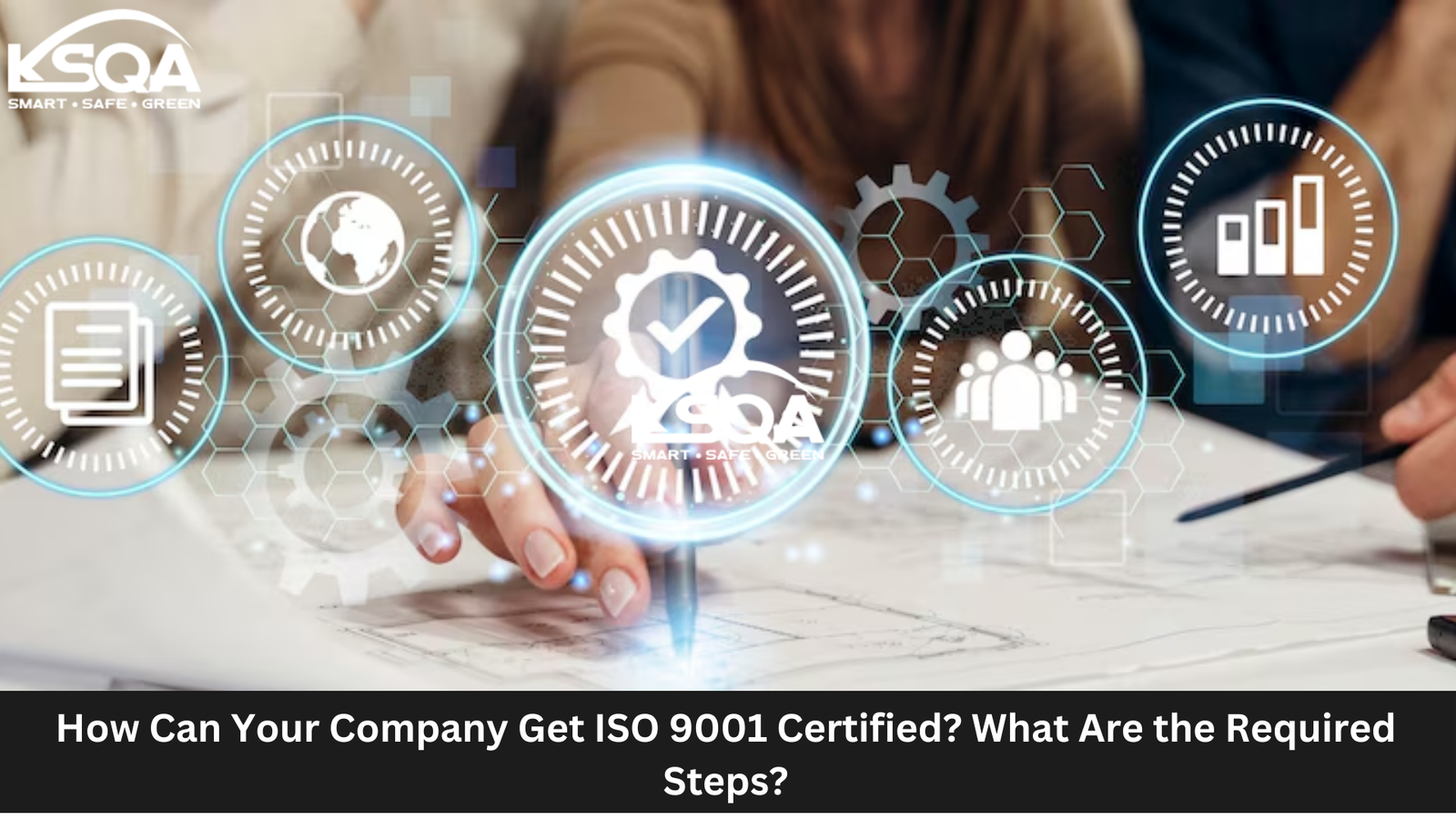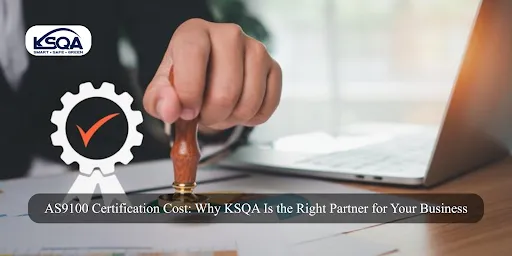Precision and safety are paramount in aerospace manufacturing. AS9100 certification stands as a beacon of excellence. But what is AS9100, and why is it so crucial for aerospace manufacturing?
In this article, let’s understand this vital certification and explore its significance in ensuring the highest standards of quality and safety in the aerospace industry.
What is AS9100?
AS9100 is not just any certification—it’s a globally recognized quality management system standard specifically designed for the aerospace industry.
Developed under the guidance of the International Aerospace Quality Group (IAQG), AS9100 builds upon the foundations laid by ISO 9001, the general quality management system standard. However, AS9100 goes a step further by incorporating additional requirements tailored to meet the unique needs and challenges of aerospace operations.
Why is AS9100 Certification Important?
1. Ensuring Safety and Reliability
Without a doubt, safety is the number one priority in aerospace manufacturing. AS9100 certification is a quality management system that caters to the safety of aerospace products and services. It, therefore, ensures that the products meet the highest safety standards, thus reducing the possibility of accidents or failures that might have devastating effects.
2. Meeting Regulatory Requirements
The regulatory framework is highly stringent for the aerospace industry, encompassing every detail of manufacturing and operations under strict standards and rules. AS9100 certification shows that the company has complied with these rules, giving it a competitive advantage and an opportunity to get a contract for heavy-duty projects.
3. Enhancing Quality and Efficiency
Cultivating an environment of continuous improvement and excellence among aerospace organizations is the goal of AS9100. Through compliance with the AS9100 requirements, companies introduce order and logic into their processes, reduce the number of mistakes, and increase the output, as a result of which they provide customers with products and services of the highest grade and the lowest failure rate.
How to Get AS9100 Certification
Achieving AS9100 certification is no easy feat—it requires dedication, resources, and a systematic approach. Here’s a simplified overview of the steps involved in obtaining AS9100 certification:
1. Preparation: Begin by conducting an internal assessment of your organization’s processes and systems to identify gaps and areas for improvement. Assign a dedicated team to manage the certification process and ensure everyone is onboard with the commitment to excellence.
2. AS9100 Consulting Services: Contact AS9100 Consulting Services to guide you through the certification process. These experts provide invaluable expertise, helping you interpret AS9100 requirements, implement necessary changes, and prepare documentation efficiently.
3. Documentation: Develop or update your quality management system documentation to align with AS9100 requirements. This includes quality manuals, procedures, work instructions, and records, all of which must demonstrate compliance with AS9100 standards.
4. Implementation: Implement the necessary changes and improvements across your organization. This may involve employee training, process revisions, and infrastructure upgrades to ensure full compliance with AS9100 requirements.
5. Internal Audit: Conduct an internal AS9100 audit to assess your organization’s compliance with AS9100 standards. This step helps identify any remaining non-conformities that need to be addressed before the external audit.
6. AS9100 Audit: Engage an accredited certification body to perform an external audit of your organization’s compliance with AS9100 standards. If your organization meets the requirements, you will receive AS9100 certification, marking a significant achievement in your journey towards excellence.
How Much Does It Cost to Get AS9100 Certified?
The cost of obtaining AS9100 certification can vary depending on several factors, including the size and complexity of your organization, the scope of your operations, and the level of expertise required.
However, here are some general cost considerations:
1. Consulting Fees: AS9100 consulting services can be invaluable in guiding you through the certification process. While these services come at a cost, their expertise can ultimately save you time and resources by minimizing costly mistakes and delays.
2. Documentation and Training: Developing and updating documentation to align with AS9100 requirements may incur additional costs. The cost also includes providing training to employees to ensure they understand and comply with AS9100 standards.
3. Audit Fees: Engaging an accredited certification body to perform an external audit of your organization can also incur fees. These fees may vary depending on the size and complexity of your organization, as well as the scope of the audit.
Conclusion
By achieving AS9100 certification, aerospace companies can enhance their reputation, build customer trust, and position themselves for long-term success in this highly competitive and regulated sector.
Curious about what is AS9100 and what it can do for your aerospace manufacturing? Let KSQA guide you through AS9100 certification. Discover how this globally recognized standard ensures top-notch quality, safety, and efficiency in your operations.


.jpg)



